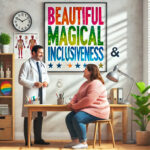Using the power of writing to create hope beyond a mental health challenge
Using the power of writing to create hope beyond a mental health challenge
Life-writing workshops can shine a light on hope for people with mental health challenges. For example, the cognitive and linguistic processing of life-events through narrative writing may help a person re-story problems or painful experiences into a manageable way that sets them free to engage fully in the present.
With an understanding writing mentor, the life-writing process can facilitate the organising and recall of events in a coherent and manageable manner while integrating thoughts and feelings. The process can provide the writer with a sense of predictability and control over their life and instill a greater sense of stability and security. When an experience is given structure and meaning, the emotional effects of that experience can become more manageable, and anxiety levels, for example, can be contained or reduced.
Life-writing which constructs a positive recovery narrative can provide a sense of agency, hope, connectedness, and creativity, in a similar, integrating way.
Life-writing or narratives, which can help us increase our understanding of both our inner self and the world around us, are more therapeutically effective when the writer is guided in:
• Instilling coherent structure in the narrative
• Avoiding clichés
• Using description rather than a statement
• Writing in their own voice
Recovery generally is considered accomplished when a person with a mental health challenge is enabled to live meaningfully in a chosen community, while also attempting to realise personal potential.
Symptoms of disability can persist, depending on the diagnosis and prognosis, but a person can develop a stronger sense of self or empowerment through guided diary-writing and creative writing – and this represents progress in recovery. Long-term illness can dislocate the sense of self as part of a community and of a self with skills and abilities. Life-writing mentoring helps to restore this sense of empowerment and re-establish an identity separate from the illness.
Recovery prospects are brighter when a person feels they are listened to and respected when they are included in decisions that direct their treatment and recovery, feel supported and motivated to achieve self-confidence through mastery and competence, and by learning and achieving goals.
Use of the narrative can assist this process by encouraging the person to recount their traumatic experiences in a cathartic way, and by encouraging them to recount positive narratives from their lives. Narratives of ‘recovery’, as opposed to focusing only on recounting traumatic experiences, can help to make recovery more realistic and possible.
Some people with mental health challenges might dwell on describing their medical case history rather than reflecting on their life or using their creative and imaginative ability to shape a life-story apart from their illness.
However, with assistance from a writing mentor they can be gently guided to focus on a more positive and creative narrative, with elements of scene creation, description and other possibilities beyond their current plight. There is always something positive in one’s life and this becomes the focus to build on. This strategy is very effective – like seeing one bright star in the evening sky, and then, more and more stars appearing until the sky is twinkling with yellow stars all over.
I have worked with people who have moderate to severe mental health challenges, including eating disorders, autism, schizophrenia, bipolar disorder and acute depression and anxiety disorders. The experience is always uplifting.
Participants confide that they feel ‘at home’ and relaxed with me, because they know I have “been there” too, and they sense and trust that I understand and respect them. We have experienced a similar road in life. The narrative becomes the means for cultivating a desire to make the most of life, by accepting what cannot be changed and focusing on what can be changed.





